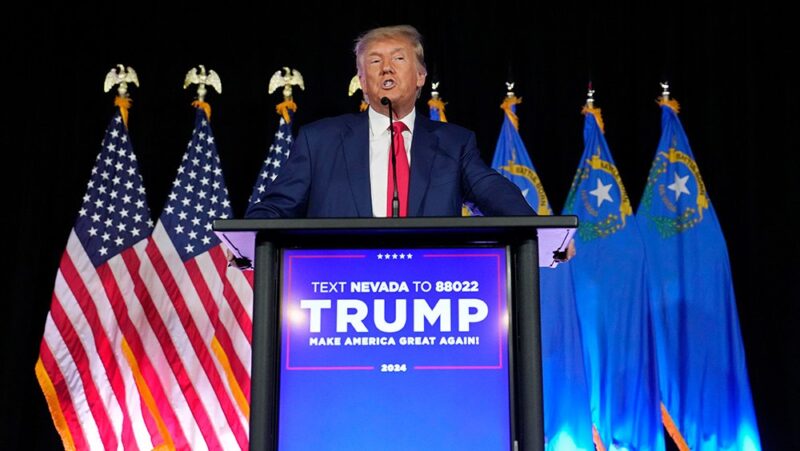Read Between the Lines of Books Bans and the First Amendment

Today, public schools and libraries across the country are a flash point in an ongoing political fight over access to information, parental rights and the role of government. These hot button issues highlight very relevant First Amendment questions.
Why book bans violate free expression
Too often, book bans and challenges happen unilaterally and disregard people’s First Amendment rights of speech, assembly and petition. When a few people can remove books, it stops people from fully participating in what democracy is all about: coming to a community consensus based on input from everyone who wants to contribute.
This isn’t to say there’s no role for scrutiny. All libraries need to balance the fundamental rights of free expression and access to information with what kind of material is appropriate for any age level or audience.
A First Amendment-based position is that governments should only restrict access to books after an objective review process that follows consistent policies and procedures and defers to education or library experts – and not based on the viewpoint of books or their authors. Doing this ensures educational, parental, community and free speech rights get proper attention. It also means parents can exercise their First Amendment right to petition the government over books in schools and libraries.
Brooklyn Public Library empowers involvement
In April 2022, the Brooklyn Public Library staff sought to push back against book bans and protect free expression. The library’s Books Unbanned program provides a free digital library card to access more than 500,000 digital books, including those being challenged, to anyone in the U.S. from ages 13 to 21. The initiative includes an Intellectual Freedom Teen Council that allows participants across the country to get involved in programs around book banning, censorship and intellectual freedom.
“The First Amendment is at the core of everything that we do,” Brooklyn Public Library CEO Linda E. Johnson said. “One of our most important missions is to protect the right of readers to read whatever they would like.”
The Brooklyn Public Library is a 2023 Freedom Forum Free Expression Award honoree.
Liberty Lake, Washington, considers review authority
The city council in Liberty Lake, in eastern Washington, has considered a policy change that would take some book review authority away from the independent but city-funded library board and give it to themselves.
Concerned residents overwhelmingly spoke against the city council exerting more control, fearing it could lead to book bans. Months before, the city council had voted not to remove a graphic novel about gender identity following a resident challenge.
The Spokesman-Review quoted Liberty Lake’s mayor calling this “a First Amendment issue” and saying, “I do not have a right to decide what anybody else is going to read. End of story.”
On May 16, the city council passed an updated proposal. The new ordinance says they cannot initiate a book ban themselves, but the council will approve or reject any proposed ban from the library board. The mayor has vetoed the new ordinance.
Brad Meltzer versus Central York School Board
Brad Meltzer’s educational books for kids in the “Ordinary People Change the World” series were standard in many elementary schools.
Two of Meltzer’s books in the series, “I am Rosa Parks” and “I am Martin Luther King Jr.,” landed in a larger list of educational resources “frozen,” or unavailable pending review, by the Central York School Board in Pennsylvania.
“People were of course shocked that anyone would ban heroes like Parks and King,” Meltzer said in a previous Freedom Forum interview. “Soon, Fox News called and asked me to come talk about it. Then CNN did the same. When Fox and CNN agree, I think the school board realized they screwed up.”
Students protested. Meltzer galvanized support to place copies in people’s Little Free Libraries in their yards, making them accessible to anyone on the street.
The school board approved the books.
“Take the lessons of Dr. King and Rosa Parks,” Meltzer told Freedom Forum’s John Maynard in November 2021. “Do not stand for this. Protest. These bans are only going to increase. They are born out of fear, and they work because people are scared.”
Uniting with books, dividing with censorship
As the Brooklyn Public Library’s Books Unbanned team notes, “Books unite us. Censorship divides us.”
Related: How a 40-year-old Supreme Court Ruling Could Impact Book Access
The First Amendment does not require all information, ideas, forms of expression, and books, to be readily available in classrooms or libraries. It does not require us to agree on which books are age-appropriate for classrooms and libraries, or to all like the same books.
But the First Amendment does prevent government from censoring based on books’ views or ideas. And it protects the freedom to express ourselves through what we say, write and read.
Scott A. Leadingham is a Freedom Forum staff writer, journalist, and journalism trainer. On Twitter: @scottleadingham
Rev. Dr. William J. Barber II: Honoring Decades of Courageous Acts of Free Expression
6 First Amendment Stories to Watch in 2024
Related Content

